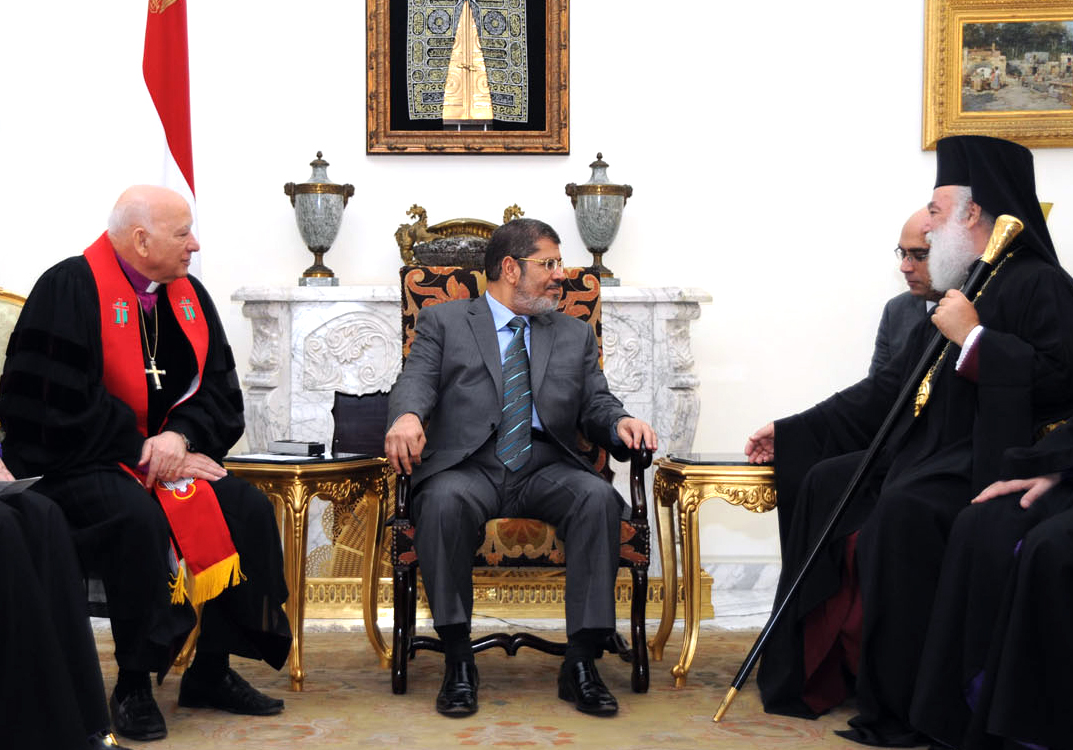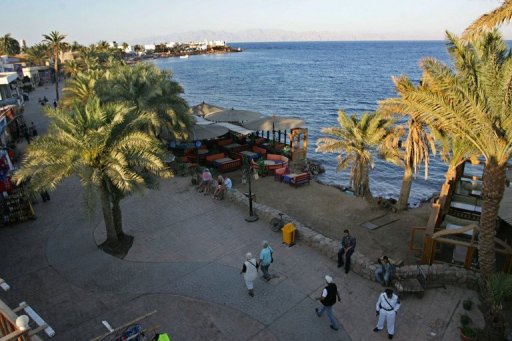 President-elect Mohamed Morsi will decide where he will take his oath of office today, his official spokesperson said. Still several issues are outstanding if Morsi plans to enforce his position.
President-elect Mohamed Morsi will decide where he will take his oath of office today, his official spokesperson said. Still several issues are outstanding if Morsi plans to enforce his position.
One critical issue is his choice of prime minister. According to Yasser Aly, the interim presidential spokesperson, Morsi’s choice for prime minister would be an “independent patriotic” figure who does not belong to either the Muslim Brotherhood or the Freedom and Justice Party, the brotherhood’s political wing and the party which Morsi once chaired.
He denied rumours that Morsi has met with Nobel laureate and former International Atomic Energy Agency chief Mohamed ElBaradei, who until a few days ago was the frontrunner for the position. Aly also denied that 30 percent of ministerial positions will go to the FJP or that SCAF will get to pick the four “sovereign” ministries of Defence, Interior, Foreign Affairs and Justice. He affirmed Morsi’s promise to form a national unity coalition cabinet.
In terms of the procedures of inauguration, Aly said Morsi has been meeting legal experts in order to reach a solution that would please the “national forces” but still obide by the law. Normally the president-elect takes the oath of office in front of parliament, but only a few days before Morsi’s victory the ruling Supreme Council of Armed Forces (SCAF) dissolved the People’s Assembly, the lower house of parliament, after a Supreme Constitutional Court decision.
SCAF then released a constitutional decree that limited the president’s powers, and gave itself legislative authority, that stated the president is to take the oath in front of the general assembly of the SCC. The FJP has rejected both the constitutional decree and the decision to dissolve the PA, which it controlled 47 percent of. FJP officials, alongside revolutionary groups who oppose SCAF, have called on Morsi to take his oath in front of the elected parliament and said holding the oath in front of the SCC would give legitimacy to SCAF’s decision. Several groups, including the brotherhood, have been holding a sit-in at Tahrir Square and say they will not leave until SCAF’s decisions are reversed. If Morsi takes the oath in front of the SCC he will alienate a large majority of his already reluctant supporter base but if he does not, he will not legally assume power.
Morsi also held numerous meetings yesterday with several special interest groups. He met with some of the martyrs’ families who resented not being invited to the initial meeting he had for martyrs’ families on Tuesday and he promised to retry the martyrs’ killers, most of whom have been acquitted.
He also met with representatives of Coptic Orthodox, Catholic, Anglican and Roman Orthodox churches and discussed national unity as well as the hardships faced by Egypt’s Christians. According to Priest Safwat El-Beyady, head of the Anglican congregation, Morsi promised to solve all problems related to religious discrimination and ease the restrictions on the building of churches as well as review the personal affairs and unified places of worship laws.
Morsi also met with Murad Muwafi, the chief of General Intelligence, and with 15 revolutionary youth groups.
Finally, Morsi started tackling Egypt’s traffic problem, one of the five main issues he said he would solve inhis first 100 days alongside security, energy, food, and the environment. According to Aly, Morsi met with specialised experts in the traffic field from Egypt and Japan and discussed potential solutions before they presented a study outlining how to eliminate congestion from Egypt’s streets within three months.




